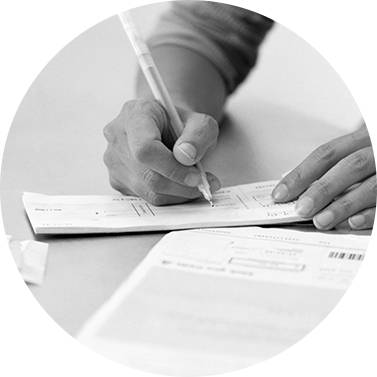
Calculators & Tools
Other Costs
Closing costs
Closing costs are the legal and administrative fees and disbursements associated with buying your home. Understanding each one will help you budget more accurately and lead to a more comfortable home buying experience.
Legal or Notary fees and disbursement
You should involve a lawyer or notary early on in the purchase process. You are responsible for paying their fees and disbursements.
Your lawyer or notary may:
- Review the Offer to Purchase
- Search the title of the home
- Complete the mortgage documents
- Register the relevant closing documents
Land Transfer Tax required for change of ownership
There may be land transfer taxes payable when you buy a home. This amount is usually based on a percentage of the purchase price of the property and varies from location to location.
Closing adjustments
Certain property expenses that the seller may have prepaid on your new home may need to be reimbursed by you before the sale is finalized. The cost of these expenses will vary. They may include:
- Municipal property tax
- Utilities, such as heating, hydro and water
- Condo maintenance fees, if applicable
Here are some of the other costs that some homebuyers may expect.
Mortgage Default Insurance
If you'll be putting less than 20% down on the purchase of you home, you will be required to pay for mortgage default insurance.
- The amount of the premium will depend on the amount you are borrowing and the percentage of your own down payment
- Typical fees range from 0.5% - 2.9% of the amount of your mortgage
- You may add this fee to your mortgage amount, or pay it in full with cash up front when you close
For more information visit Canada Mortgage and Housing Corporation (CMHC) or Genworth Financial Canada
Property/Fire insurance is a must
You will be required to have proof of insurance for your mortgage lender effective at the time you legally take possession of your new home.
- This insurance must at least cover the replacement value of the home, and contents
- Some insurance companies may require evidence of a home inspection before insuring certain types of dwellings
A property survey
A survey is a document that specifies the exact size and boundaries of your property, as well as the location of the building on the property and the type and size of the building including additions, if any.
If you are planning on doing any building - such as constructing a fence, deck, or adding on to your new home - a survey will help you know the boundaries you need to work within.
Have a home inspection
During a home inspection, a qualified professional will look over your potential new home, and outline any repairs that may be required.
- These may be minor or major areas of concern
- They may be immediate requirements, or things to be mindful of for the future
- You may be able to use the results of the inspection to negotiate some price changes in the purchase price.
Valuation Fees
For all mortgages, a valuation of the property is required before finalizing your mortgage and the cost for this will be determined by your lender.
Closing Adjustment
Certain property expenses that the seller may have prepaid on your new home may need to be reimbursed by you before the sale is finalized. The cost of these expenses will vary. They may include:
- Municipal property tax
- Utilities, such as heating, hydro and water
- Condo maintenance fees, if applicable
Status Certificate
If you are purchasing a condominium, this certificate outlines a condominium corporation's financial and legal state of affairs and you may be asked to provide a copy of this document when you apply for your mortgage. Fees for this certificate may vary.

Next Up: Ongoing Expenses of Home Ownership
Start your Pre-Approval
Find a Mortgage Specialist that's close to you and request a meeting.
Have a Mortgage Specialist visit you
